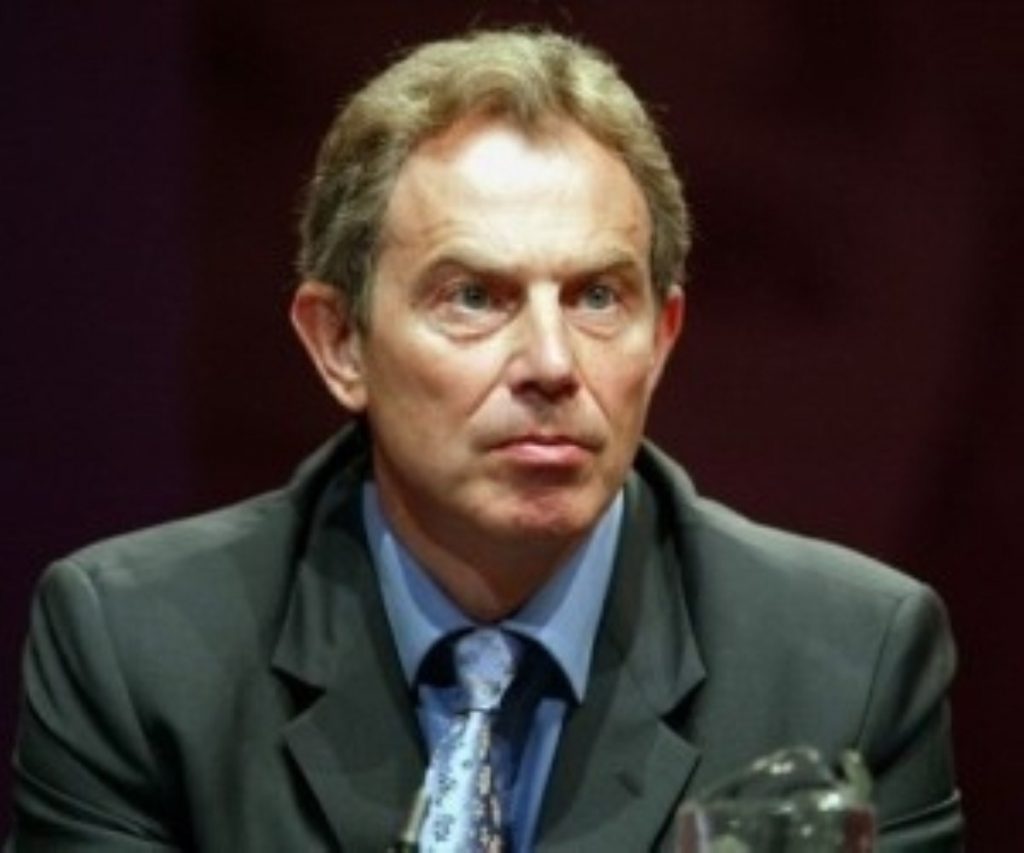Mixed reception to Blair speech
The Prime Minister’s keynote speech to the Labour Party conference has drawn a mixed reception from delegates and opposition groups.
Promising power, wealth and opportunity for the many, not the few, Tony Blair pledged to do ten “things” if Labour was returned to power at the next general election.
He told delegates that Labour would help first time home buyers get on the property ladder, do more on vocational education, offer greater choice for schools and hospitals, roll out childcare for parents of three to 14-year-olds, boost pensions, beef up law and order, produce a system of ID cards for immigrants, and underscore a fair deal for all at work.
Mr Blair said: “I don’t want to create a society where all succeed equally, but an opportunity society where all have an equal chance to succeed no matter what their background, class or race”.


Dr Liam Fox, Conservative Party co-chairman, said Mr Blair’s speech was “all talk” and full of unrealistic pledges for a Labour third term of office.
Mr Fox said voters had heard it all before.
“Tony Blair is very much out of touch if he thinks the only reason people don’t trust him is Iraq.
“The real reason is because he said taxes would not rise and the have; he said there would be no tuition fees for students, and now there are; he said he would cut crime yet we have a record level of violent crime; and he said he would control asylum and immigration, but it’s out of control”.
Dr Fox said one thing was for sure – Labour would deliver a third term of tax rises.
“Mr Blair has let people down very badly, and he has lost the trust of the British people. His speech was all talk. He’s had seven years, but Labour hasn’t delivered. Why should the British people trust him and his party for a third term?”
Charles Kennedy, Liberal Democrat leader, said Mr Blair had “already forgotten he broke his promise at the last election not to introduce tuition fees”.
“The reality is that he’s squandered public trust on this. And he’s squandered it over his misguided war in Iraq,” Mr Kennedy added.
Warning that his own party was a political force to be reckoned with, he told the Prime Minister to take his party seriously.
Tony Woodley, head of the Transport and General Workers’ union, welcomed the substance of Mr Blair’s seventh conference speech but said he should concentrated more on domestic issues and not on the Iraq war.
“I thought the Prime Minister started strongly, focusing on the important issues of the day such as pensions, more holidays for people who would not otherwise get them,” he said.
“He did really well concentrating on big domestic issues but then he spent far too much time trying to justify the war in Iraq.
“As important as that is, it is clear that working men and women wanted to hear him talk about the delivery of decent pensions, pay and employment rights”.
Derek Simpson, general secretary of Amicus, said Mr Blair “did the business,” dealing with pensions, jobs and employment protection.
But Mark Serwotka, general secretary of the Public and Commercial Services Union, slammed the Government’s decision to axe more than 100,000 civil service jobs.
“The Prime Ninister talks about opportunities in society but to deliver those you need staff. How can you offer schemes such as Sure Start if you are cutting back on the people who deliver it?”
David Prentis, general secretary of Unison, said Mr Blair was heading in the right direction to restore “trust and unity in the party”.
“Let’s hope that his pledges and those of the chancellor will enable us to agree on a manifesto which will unite our party and its leadership to win a radical third term for Labour.
“The Prime Minister today dealt with the key issues facing the party head on. And in saying that he was wrong over the weapons of mass destruction he showed that he was a strong leader. He once again demonstrated that he has the courage of his convictions”.

